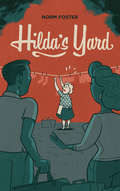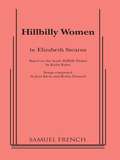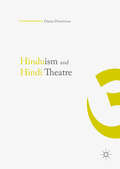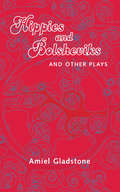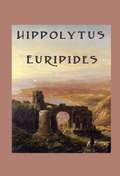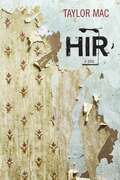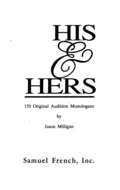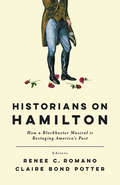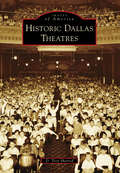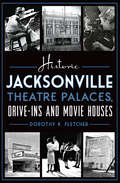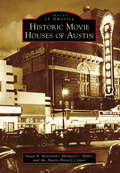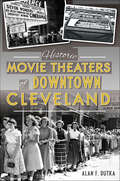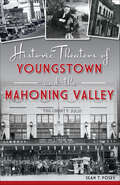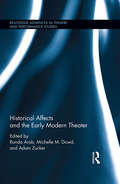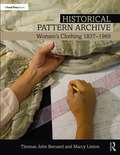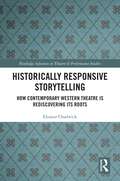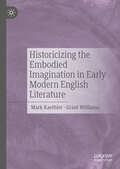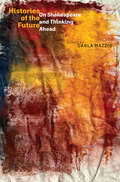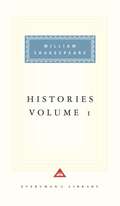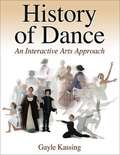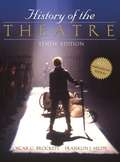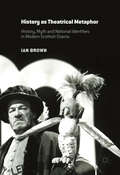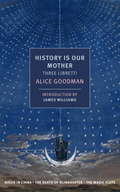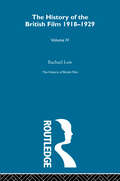- Table View
- List View
Hilda's Yard
by Norm FosterLemonade is for people who use the front door. It’s an exciting summer day in 1956 for Hilda and Sam Fluck. Newly on their own since their thirtysomething children Gary and Janey moved out, they are finally ready to relax. Hilda plans to hang her laundry while Sam goes to buy a shiny new television. What could disturb their simple peace? Turns out doors are merely decoration as Gary and Janey literally fall over the fence into the backyard, looking for help out of sticky situations. Gary has lost his job, is enamoured with his new girlfriend, Bobbi, and running from a bookie named Beverly, while the ever-dependent Janey has unexpectedly left her husband. The family careens into an afternoon of calamity, showing them that ultimately they must celebrate how they can be together rather than apart. Norm Foster’s heartwarming and relatable family comedy proves that there will always be a significant weight to an empty nest.
Hillbilly Women
by Elizabeth StearnsBased on interviews in Appalachia, this docu drama features seven women who reveal in song and narrative their personal stories of survival against incredible odds.
Hinduism and Hindi Theater
by Diana DimitrovaThis book explores the representation of Hinduism through myth and discourse in urban Hindi theatre in the period 1880-1960. It discusses representative works of seven influential playwrights and looks into the ways they have imagined and re-imagined Hindu traditions. Diana Dimitrova examines the intersections of Hinduism and Hindi theatre, emphasizing the important role that both myth and discourse play in the representation of Hindu traditions in the works of Bharatendu Harishcandra, Jayshankar Prasad, Lakshminarayan Mishra, Jagdishcandra Mathur, Bhuvaneshvar, Upendranath Ashk, and Mohan Rakesh. Dimitrova'a analysis suggests either a traditionalist or a more modernist stance toward religious issues. She emphasizes the absence of Hindi-speaking authors who deal with issues implicit to the Muslim or Sikh or Jain, etc. traditions. This prompts her to suggest that Hindi theatre of the period 1880-1960, as represented in the works of the seven dramatists discussed, should be seen as truly 'Hindu-Hindi' theatre.
Hippies and Bolsheviks and Other Plays: and Other Plays
by Amiel GladstoneHippies and Bolsheviks and Other Plays collects three works by one of Canada's dramatic luminaries.'Hippies and Bolsheviks' is set in that hotbed of hippie idealism, 1970s British Columbia. Young Star stumbles home from a Led Zeppelin concert with a draft dodger and sets in motion a crisis of love and of faith in their idealism against the Establishment.'In Lena's Car', a woman whose marriage is on the verge of collapse reflects on how it got to that point, harkening back to a youth when things were both more simple and more complicated.'>In The Wedding Pool', a group of dissatisfied single friends decide to each contribute fifty dollars a month to a pool to be collected by the first one to marry. But when one of the friends starts dating the bank teller who opens their account, the others are forced to confront their ideas about loneliness and personal responsibility.'The Wedding Pool is a particularly smart and entertaining example of the thirty-something angst genre.' - The Globe and Mail 'If Hippies and Bolsheviks is any indication of the quality of work at this year's playrites Festival, Calgary theatregoers are in for a phenomenal month.' - Calgary Sun.
Hippolytus
by EuripidesNo play of Euripides is more admired than Hippolytus. The tale of a married woman stirred to passion for a younger man was traditional, but Euripides modified this story and blended it with one of divine vengeance to create a masterpiece of tension, pathos, and dramatic power. In this play, Phaedra fights nobly but unsuccessfully against her desire for her stepson Hippolytus, while the young man risks his life to keep her passion secret. Both of them, constrained by the overwhelming force of divine power and human ignorance, choose to die in order to maintain their virtue and their good names.
Hir: A Play
by Taylor MacDischarged from the Marines under suspicious circumstances, Isaac comes home from the wars, only to find the life he remembers upended. Isaac’s father, who once ruled the family with an iron fist, has had a debilitating stroke; his younger sister, Maxine, is now his brother, Max; and their mother, Paige, is committed to revolution at any cost. Determined to be free of any responsibility toward her formerly abusive husband—or the home he created—Paige fervently believes she can lead the way to a "new world order." Hir, Taylor Mac’s subversive comedy, leaves many of our so-called normative and progressive ideas about gender, families, the middle class—and cleaning—in hilarious and ultimately tragic disarray.
His And Hers
by Jason MilliganHere are 150 original monologues by the author of the popular collections ACTORS WRITE FOR ACTORS, ENCORE! and GOING SOLO. Each features sharply defined characters with clear-cut objectives, designed to showcase individual talents. (No royalty for audition purposes only.)
His Greatness
by Daniel MacIvorThree men, a great American playwright, his trusted and loyal assistant, and a young Canadian street hustler, find themselves together for two days in a hotel room in Vancouver. This is the story about the nature of life in a created world. Inspired by a potentially true story about the great American playwright...
Historians on Hamilton: How a Blockbuster Musical Is Restaging America's Past
by William Hogeland Elizabeth L. Wollman Jeffrey L. Pasley Michael O'Malley Jim Cullen David Waldstreicher Catherine Allgor Renee C. Romano Andrew M. Schocket Brian Eugenio Herrera Joanne B. Freeman Claire Bond Potter Lyra D. Monteiro Leslie M. Harris Joseph M. Adelman Patricia HerreraAmerica has gone Hamilton crazy. Lin-Manuel Miranda’s Tony-winning musical has spawned sold-out performances, a triple platinum cast album, and a score so catchy that it is being used to teach U.S. history in classrooms across the country. But just how historically accurate is Hamilton? And how is the show itself making history?Historians on Hamilton brings together a collection of top scholars to explain the Hamilton phenomenon and explore what it might mean for our understanding of America’s history. The contributors examine what the musical got right, what it got wrong, and why it matters. Does Hamilton’s hip-hop take on the Founding Fathers misrepresent our nation’s past, or does it offer a bold positive vision for our nation’s future? Can a musical so unabashedly contemporary and deliberately anachronistic still communicate historical truths about American culture and politics? And is Hamilton as revolutionary as its creators and many commentators claim? Perfect for students, teachers, theatre fans, hip-hop heads, and history buffs alike, these short and lively essays examine why Hamilton became an Obama-era sensation and consider its continued relevance in the age of Trump. Whether you are a fan or a skeptic, you will come away from this collection with a new appreciation for the meaning and importance of the Hamilton phenomenon.
Historic Dallas Theatres
by D. Troy SherrodDallas was the show business capital of Texas and much of the South throughout the 20th century. More than 100 theatres served the city's neighborhoods, and Elm Street once boasted more than 15 vaudeville and movie theatres--second in number to Broadway. The quality of the show houses in Dallas were surpassed by few cities and all major, and most minor, Hollywood studios maintained Dallas offices. Notable names figuring in this history include Margo Jones, "Blind" Lemon Jefferson, Karl Hoblitzelle, Baruch Lumet, Bob Hope, Greer Garson, Linda Darnell, Howard Hughes, Clyde Barrow, Gene Autry, Oliver Stone, Pappy Dolson, Jack Ruby, Lee Harvey Oswald, Nicola Rescigno, Don Henley, and Frank Lloyd Wright.
Historic Jacksonville Theatre Palaces, Drive-ins and Movie Houses (Landmarks)
by Dorothy K. FletcherJacksonville's theatre and performance history is rich with flair and drama. The theatres, drive-ins and movie houses that brought entertainment to its citizens have their own exciting stories. Some have passed into memory. The Dixie Theatre, originally part of Dixieland Park, began to fade in 1909. The Palace Theatre, home to vaudeville acts, was torn down in the '50s. The Alhambra has been everyone's favorite dinner theatre since 1967's debut of Come Blow Your Horn. Local author Dorothy K. Fletcher revives the history of Jacksonville's theatres. Lights, camera, action!
Historic Movie Houses of Austin (Images of America)
by Austin History Center Michael C. Miller Susan RittereiserMotion pictures came to Austin on October 10, 1896, debuting at the Hancock Opera House. Since then, movies have continued to enchant, entertain, and inform the citizens of the capital of Texas. And, the places--the movie houses and theaters--where people saw motion pictures played just as important a role in the moviegoing experience as the movies themselves. As the city's population grew and motion picture technology changed, so too did Austin's movie houses, from the first kinetoscope parlor on Congress Avenue to the city' s first four-plex, the Aquarius 4, in southeast Austin. While most of these places are long gone, some withstood the test of time and are still showing movies or have been repurposed for other uses. Through the rich archival collections of the Austin History Center, Historic Movie Houses of Austin explores the stories of these important historic spaces and of the lives of those who were connected with them.
Historic Movie Theaters of Downtown Cleveland (Landmarks)
by Alan F. DutkaThe first movie theaters in Cleveland consisted of converted storefronts with sawed-off telephone poles substituting for chairs and bedsheets acting as screens. In 1905, Clevelanders marveled at moving images at Rafferty's Monkey House while dodging real monkeys and raccoons that wandered freely through the bar. By the early 1920s, a collection of marvelous movie palaces like the Stillman Theater lined Euclid Avenue, but they survived for just two generations. Clevelanders united to save the State, Ohio and Allen Theaters, among others, as wrecking balls converged for demolition. Those that remain compose one of the nation's largest performing arts centers. Alan F. Dutka shares the remarkable histories of Cleveland's downtown movie theaters and their reemergence as community landmarks.
Historic Theaters of Youngstown and the Mahoning Valley (Landmarks)
by Sean T. PoseyHistoric Theaters of Youngstown and the Mahoning Valley traces the evolution of modern cinema through the rich local history of the Mahoning Valley.From the days of the gaslit opera houses through the era of the drive-in, the Mahoning Valley's theatrical culture has thrived. The finest theaters in northeastern Ohio rose with the manufacturing might of the Steel Valley. The Warner brothers, who started their careers in Youngstown, opened their first theater in New Castle, Pennsylvania, and celebrities from Katharine Hepburn to Red Skelton graced local stages. The finest vaudevillians and the lovely ladies of burlesque were always a ticket away. Take a trip back to the Park Burlesque and the opulent Palace Theater and revisit the theater culture of Warren and Trumbull County. Author Sean T. Posey traces the evolution of modern cinema through the rich local history of the Mahoning Valley.
Historical Affects and the Early Modern Theater (Routledge Advances in Theatre & Performance Studies)
by Ronda Arab Michelle Dowd Adam ZuckerThis collection of original essays honors the groundbreaking scholarship of Jean E. Howard by exploring cultural and economic constructions of affect in the early modern theater. While historicist and materialist inquiry has dominated early modern theater studies in recent years, the historically specific dimensions of affect and emotion remain underexplored. This volume brings together these lines of inquiry for the first time, exploring the critical turn to affect in literary studies from a historicist perspective to demonstrate how the early modern theater showcased the productive interconnections between historical contingencies and affective attachments. Considering well-known plays such as Shakespeare’s Antony and Cleopatra and Thomas Dekker’s The Shoemaker’s Holiday together with understudied texts such as court entertainments, and examining topics ranging from dramatic celebrity to women’s political agency to the parental emotion of grief, this volume provides a fresh and at times provocative assessment of the "historical affects"—financial, emotional, and socio-political—that transformed Renaissance theater. Instead of treating history and affect as mutually exclusive theoretical or philosophical contexts, the essays in this volume ask readers to consider how drama emplaces the most personal, unspeakable passions in matrices defined in part by financial exchange, by erotic desire, by gender, by the material body, and by theatricality itself. As it encourages this conversation to take place, the collection provides scholars and students alike with a series of new perspectives, not only on the plays, emotions, and histories discussed in its pages, but also on broader shifts and pressures animating literary studies today.
Historical Pattern Archive: Women’s Clothing 1837-1969
by Thomas John Bernard Marcy LintonHistorical Pattern Archive: Women’s Clothing 1837–1969 is the first book of its kind to capture such a wide range of women’s period patterns in one book, featuring 83 patterns spanning over a century of clothing. The book offers an accurate pattern of each garment on a 1/8" graph that can be used to scale the pattern up to its original size, drawings of each piece from multiple angles, and instructions about how the original garment was constructed and what materials were used. Capturing research and information about garments that would have otherwise stayed hidden or disappeared permanently due to age, wear, or poor storage conditions, this volume is designed to be a tool to preserve history through documenting vintage clothing. Written for historians, reenactors, costumer makers, and costume designers, Historical Pattern Archive will enable readers to study the history behind each piece, implement their original techniques, and recreate unique garments that are both beautiful and historically accurate.
Historically Responsive Storytelling: How Contemporary Western Theatre is Rediscovering its Roots (Routledge Advances in Theatre & Performance Studies)
by Eleanor ChadwickThis book explores the notion that the emergent language of contemporary theatre, and more generally of modern culture, has links to much earlier forms of storytelling and an ancient worldview. This volume looks at our diverse and amalgamative theatrical inheritance and discusses various practitioners and companies whose work reflects and recapitulates ideas, approaches, and structures original to theatre’s ritual roots. Drawing together a range of topics and examples from the early Middle Ages to the modern day, Chadwick focuses in on a theatrical language which includes an emphasis on the psychosomatic, the non-linear, the symbolic, the liminal, the collective, and the sacred. This interdisciplinary work draws on approaches from the fields of anthropology, philosophy, historical and cognitive phenomenology, and neuroscience, making the case for the significance of historically responsive modes in theatre practice and more widely in our society and culture.Eleanor
Historicizing the Embodied Imagination in Early Modern English Literature
by Grant Williams Mark KaethlerCommonly used as a rallying cry for general approaches to literary studies, the imagination has until recently been overwritten with romantic and modernist inflections that impede our understanding of literature’s intimate involvement in early modern cognition. To recover the pre-Cartesian imagination, this collection of essays takes a historicist approach by situating literary texts within the embodied and ensouled faculty system. Image-making and fantasizing were not autonomous activities but belonged to a greater cognitive ecosystem, which the volume’s four sections reflect: “The Visual Imagination,” “Sensory and Affective Imaginings,” “Artifice and the Mnemonic Imagination,” and “Higher Imaginings.” Together they accentuate the imagination’s interdependency and friction with other faculties. Ultimately, the volume’s attention to the embodied imagination gives scholars new perspectives on literary and image production in the writings of Spenser, Shakespeare, Donne, and their contemporaries.
Histories of the Future: On Shakespeare and Thinking Ahead
by Carla MazzioWhat early modern and Shakespeare studies have to offer contemporary thinking about the futureWhat do early modern and Shakespeare studies have to offer contemporary thinking about the future? Joining a series of urgent conversations about “the future” as an object of analysis and theorization in early modern history, art history, literature, science, theology, and law, Histories of the Future addresses this question directly. This volume brings together essays that draw on early modern modes of “thinking ahead” to reconsider the ways in which the teaching and reading of Shakespeare help shape how one imagines the future from the vantage point of today.By stressing the importance of understanding how future-oriented thinking in the past informs perceptions of possibility in the present—with special attention to contemporary issues of climate change, economic inequality, race and indigeneity, queer lives, physical and mental health crises, academic precarity, conditions of scholarly labor, and the ongoing disastrous effects of settler colonialism—Histories of the Future contributes to a rich and expanding field of scholarship on temporality in pre- and early modern literatures and cultures. In the process, it also engages with key insights of twenty-first-century critical and cultural theory in reexamining historical issues ranging from the imagined inevitability of progress or apocalypse to fraught conditions of succession, chronology, catastrophe, influence, prophecy, and risk.With essays by J. K. Barret, Urvashi Chakravarty, Drew Daniel, John Garrison, Margreta de Grazia, Jean E. Howard, Jeffrey Masten, Marissa Nicosia, Vimala Pasupathi, Kathryn Vomero Santos, and Scott Manning Stevens, Histories of the Future explores the possibilities and limits of early modern futures for “thinking ahead” today.
Histories: Volume 1 (Everyman's Library)
by William Shakespeare Sylvan BarnetShakespeare's histories--containing within their crowded tableaux all of the tragedies, confusions, and beauties of human life--are not only drama of the highest order. They also serve as windows through which generations have made themselves familiar with crucial episodes in English history. Included are: Henry VI, Parts 1, 2, and 3; Richard III; and King John.
History Of Dance: An Interactive Arts Approach
by Gayle KassingHistory of Dance: An Interactive Arts Approach provides an in-depth look at dance from the dawn of time through the 20th century. Using an investigative approach, this book presents the who, what, when, where, why, and how of dance history in relation to other arts and to historical, political, and social events. In so doing, this text provides a number of ways to create, perceive, and respond to the history of dance through integrated arts and technology. This study of dancers, dances, and dance works within an interactive arts, culture, and technology environment is supported by the National Standards in dance, arts education, social studies, and technology education. History of Dance: An Interactive Arts Approach has four parts. Part I explains the tools used to capture dance from the past. Part II begins a chronological study of dance, beginning with its origins and moving through ancient civilizations and the Middle Ages through the Renaissance. Part III covers dance from the 17th to the 20th century, including dance at court, dance from court to theater, romantic to classical ballet, and dance in the United States. Part IV focuses on 20th-century American dance, highlighting influences on American ballet and modern dance as it emerged, matured, and evolved during that century.
History Of the Theatre (Tenth Edition)
by Oscar G. Brockett Franklin J. HildyKnown as the "bible" of theatre history, Brockett and Hildy's History of the Theatre is the most comprehensive and widely used survey of theatre history in the market. This 40th Anniversary Edition retains all of the traditional features that have made History of the Theatre the most successful text of its kind, including worldwide coverage, more than 530 photos and illustrations, useful maps, and the expertise of Oscar G. Brockett and Franklin J. Hildy, two of the most widely respected theatre historians in the field. As with every edition, the text reflects the current state of knowledge and brings the history of theatre up to the present. This tenth edition continues to provide the most thorough and accurate assessment of theatre history available.
History as Theatrical Metaphor
by Ian BrownThis revelatory study explores how Scottish history plays, especially since the 1930s, raise issues of ideology, national identity, historiography, mythology, gender and especially Scottish language. Covering topics up to the end of World War Two, the book addresses the work of many key figures from the last century of Scottish theatre, including Robert McLellan and his contemporaries, and also Hector MacMillan, Stewart Conn, John McGrath, Donald Campbell, Bill Bryden, Sue Glover, Liz Lochhead, Jo Clifford, Peter Arnott, David Greig, Rona Munro and others often neglected or misunderstood. Setting these writers' achievements in the context of their Scottish and European predecessors, Ian Brown offers fresh insights into key aspects of Scottish theatre. As such, this represents the first study to offer an overarching view of historical representation on Scottish stages, exploring the nature of 'history' and 'myth' and relating these afresh to how dramatists use - and subvert - them. Engaging and accessible, this innovative book will attract scholars and students interested in history, ideology, mythology, theatre politics and explorations of national and gender identity.
History is Our Mother: Nixon in China, The Death of Klinghoffer, The Magic Flute
by James Williams Alice GoodmanThe first appearance of Alice Goodman's two internationally-renowned and controversial libretti, alongside one of her masterful translations.An NYRB Classics Original Nixon in China and The Death of Klinghoffer played a crucial role in bringing opera back to life as a contemporary art form, and they have been popular—and, in the case of Klinghoffer, highly controversial—ever since they were first staged by the director Peter Sellars in the eighties and nineties. Both operas were conceived from the start as collaborations between composer and writer, and their power is due as much to the dazzlingly constructed and deeply felt libretti of the poet Alice Goodman as they are to John Adams’s music. Nixon in China is a story, at once heroic, comic, and unnerving, of men and women making history and of their different conceptions of what history is and what it means to makes it. Klinghoffer, by contrast, has at its center the tragedy of an innocent man condemned at the cost of his life to play a part in history. History Is Our Mother, which takes its title from a line sung by the title character in Nixon in China, brings Goodman’s two libretti together for the first time in book form. Included alongside Goodman’s no less inspired translation of Emanuel Schikaneder’s famous libretto to The Magic Flute, these vivid dramas of character and searching meditations on fate are here revealed as among the most original, ambitious, and accomplished poetic achievements of our time.
History of British Film (Volume 4): The History of the British Film 1918 - 1929
by Rachael LowThis set is one of the cornerstones of film scholarship, and one of the most important works on twentieth century British culture. Published between 1948 and 1985, the volumes document all aspects of film making in Britain from its origins in 1896 to 1939.Rachael Low pioneered the interpretation of films in their context, arguing that to understand films it was necessary to establish their context. Her seven volumes are an object lesson in meticulous research, lucid analysis and accessible style, and have become the benchmark in film history.
